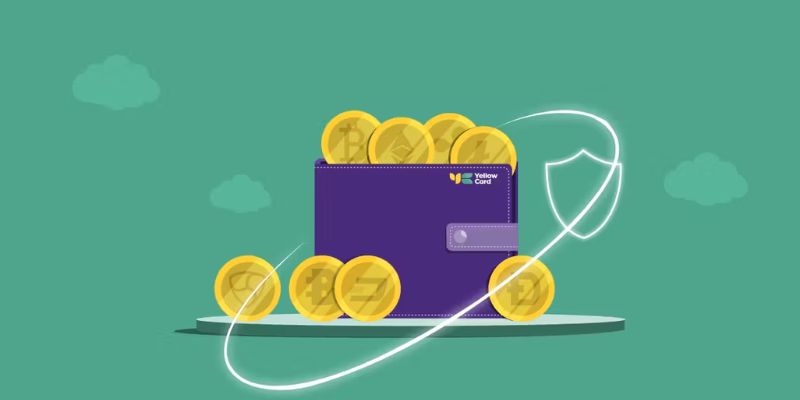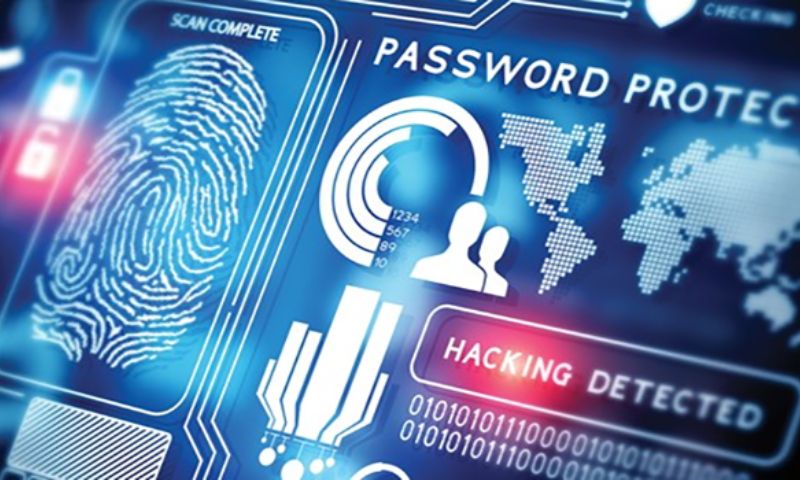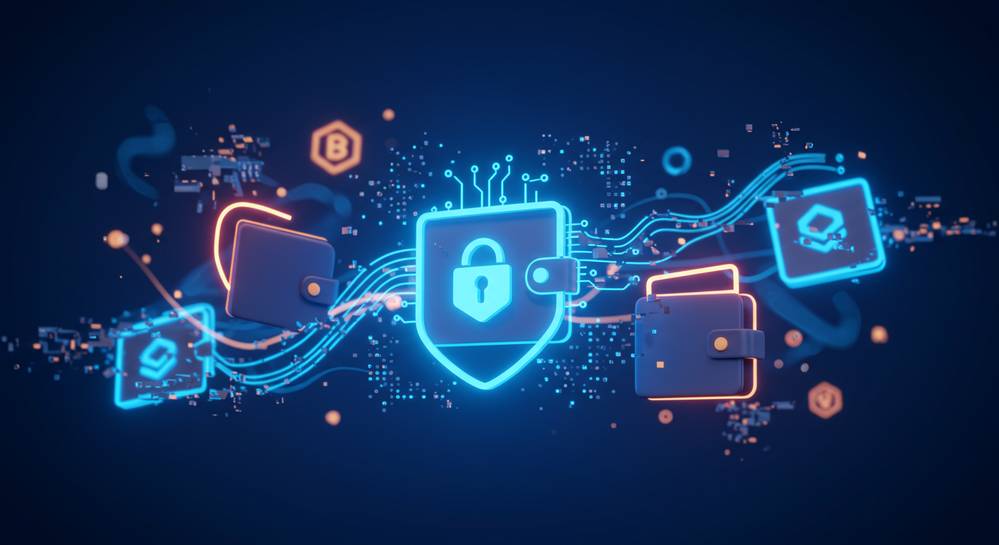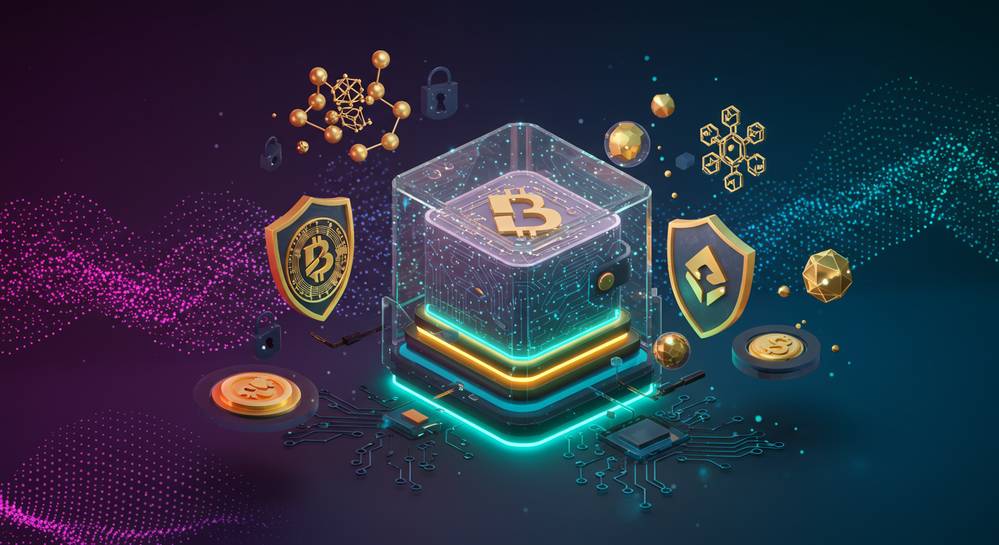How to prevent crypto wallet hacks isn’t just wise; it’s a must. Imagine waking up to an empty wallet – your digital coins, gone. I’ve been there, and trust me, it stings. My misfortune turned into a mission: to ensure that your crypto stays right where it should – in your control. Whether you’re new or a pro in the crypto game, this guide takes you through the nooks and crannies of wallet security, starting from the basics to beefing up your defenses against cunning cyber threats. Follow my footsteps to financial peace of mind; let’s seal those security gaps together!
Understanding the Basics of Crypto Wallet Security
Hot Wallet Safety Versus Cold Storage Protection
When it comes to crypto, keeping your money safe is a big deal. Hot wallets are like your everyday wallet. They’re online and easy to use for buying stuff quick. But, they can be risky because they’re connected to the internet. Hackers like to sneak in, so you’ve got to be sharp!
Cold storage, on the other hand, is like a safe. It’s not online, so it’s super tough for thieves to crack. But it’s not as handy when you want to use your crypto fast. Think of it like this: hot wallets for spending, cold storage for saving big.
Secure Digital Wallets and Protecting Digital Currency
Now, securing your wallet is just like locking up your bike. You wouldn’t use a cheap lock, right? So, for your wallet, a strong password is key. Mix up letters, numbers, and symbols to make it tough. Like a puzzle no one else can solve.
And just like you’d get a message if someone tried to get into your stuff, two-factor authentication is that message for your wallet. It double-checks it’s really you trying to get in.
Also, watch out for phishing attacks. Don’t click on weird links or give out your info. If something smells fishy, it probably is. You gotta stay sharp and question things that don’t look right.
But wait, there’s a superhero gadget in the crypto world – the hardware wallet. It’s a little device that keeps your crypto locked tight. Even if your computer gets into trouble, your crypto stays safe with it.
Don’t forget about multi-signature technology. It’s like needing two keys to open a vault. You need more than one person to say “OK” before a transaction can happen. It’s teamwork for security!
And here’s a golden rule – always keep a backup. If your wallet has a backup strategy, it’s like having an extra parachute. You’ll be glad you had it if you need it.
But wait, there’s more! Keeping your wallet updated is like getting the newest armor. Software updates can fix holes in security before the bad guys can jump in.
Finally, let’s talk about keeping your private key safe. That’s like the secret code to your crypto kingdom. Write it down and keep it somewhere nobody but you can find it. It’s that important.
Locking down your wallet means taking these steps and always being ready. If you do, you’ll be a crypto champion with a wallet that’s like Fort Knox for your digital gold. Let’s keep those coins safe and sound!

Implementing Advanced Security Measures
Two-Factor Authentication and Strong Password Policies
We all have a key to our home, right? Just like that, you need a strong lock for your crypto wallet. Now, a strong password is like a tough lock. Use letters, numbers, and symbols in your password. Make it long and unique. But don’t stop there. Just like having a door alarm, you need two-factor authentication (2FA) for your wallet. When you log in, 2FA sends a code to your phone or email. You have to enter this code to get into your wallet. It’s a second step that keeps the bad guys out. It’s like having a double lock on your door.
Multi-Signature Technology and Adoption of Wallet Encryption
Ever shared a secret with more than one friend? That’s kind of what multi-signature technology does for your wallet. It means you need approval from more than one device or person to make a transaction. It’s like needing two keys to open a bank vault. Another big word you should know is “encryption.” This scrambles your wallet info so only you can read it. Think of it like a secret code that only you know. This keeps hackers from looking at your stuff. It’s important to use both of these to keep your coins safe.
Remember, like any good secret agent, you need to keep updating your gear. That means always get the latest software updates for your wallet. It’s like making sure your lock fits the newest, strongest door.
Lastly, make it a habit to safely store your backup keys or seed phrases. If things go wrong, these will help you get your wallet back. It’s like having a spare key hidden away but much safer!
With these steps, your crypto stays in your wallet, safe and sound. Always be smart and protect your digital cash like a pro.

Safeguarding Against Common Crypto Security Threats
Phishing Attack Prevention and Email Scam Awareness
Watch out for tricks hackers use to get your wallet info. They might send you emails that look real but are not. These emails try to scare you into giving your details fast. They can even look like they come from a company you know.
Always check where an email comes from before you click on links or give away personal info. If in doubt, go to the company’s real website or contact them. Do not just reply to the email. A real company will not ask for your private wallet keys by email.
It’s also smart to use different emails for different things. One for financial stuff, another for signing up for websites or social media. It helps you know if an email is from a hacker or not.
Using a spam filter can help too. It keeps those fake emails out of your inbox to start with. If you do see one, do not click on anything. Just delete it.
Remember, good wallet hygiene means keeping your eyes open. You must be on guard against these phishing scams.
Avoiding Shady ICOs for Enhanced Digital Currency Trust
When new coins or projects start up, they often have an ICO, or Initial Coin Offering. This is when they first sell their coin. But some of these ICOs are not honest. They just want your cash and then they disappear.
To stay safe, do some homework before putting money into an ICO. Look for info about the team behind the project. Check their past work and reputation. A lack of details or poor online reviews can be red flags.
Also, read the project’s white paper. It should have clear goals and a plan for how to reach them. If the paper is full of buzzwords but no real info, be wary. A strong community and support also mean the ICO is more likely to be on the up and up.
Remember how we trust a strong lock to keep our homes safe? We must put that kind of trust in our research before we join an ICO. And just like we would not open our door to a suspicious stranger, do not open your wallet to a shady ICO.
Be smart and ask lots of questions. This can keep your digital currency safe. And when in doubt, steer clear. It’s better to miss out than to lose out. Your digital assets are worth the extra care.
Keeping smart in the digital world is a big part of staying secure. Just like you’d keep your physical wallet out of plain sight, you need to do the same for your digital one. Preventing email tricks and avoiding bad ICOs is just the start. Always be alert. Happy and safe trading!

Maintaining and Updating Wallet Security
Regular Software Updates and Backup Strategies for Wallets
Keeping your crypto wallet secure is like guarding a treasure. Make sure to keep your wallet software up to date. Why, you ask? Because each update can fix bugs and close security holes. Think of it like patching up cracks in a fortress wall. Checking for updates should happen at least once a month. This makes sure hackers find no easy way in.
Next, let’s talk backup strategies for wallets. Backup lets you recover your crypto if your device gets lost or breaks. It’s crucial to do this the right way. Write down your recovery phrase and keep it safe, like in a locked safe or safety deposit box. Never store it on a computer or online where hackers could sneak a peek.
Private Key Safeguarding and Preventing Unauthorized Access
Your private key is the key to your crypto kingdom. Lose it, and you might lose your funds forever. So, how do you keep it safe? Never share it with anyone, and keep multiple copies in separate, secure places. Think of it as hiding parts of a map leading to buried treasure.
Now, here’s how you stop unwanted guests from getting in. Always use a strong password for wallets. A good password is like a strong lock on a door. It has letters, numbers, and symbols. It’s hard to guess but easy for you to remember.
Two-factor authentication can double the security. It’s like having a guard ask for a secret code before you go in. So even if someone gets your password, they still can’t get into your wallet without this code. Set this up on all your devices and services.
Lastly, let’s touch on mobile wallet protection. It’s handy but risky. Treat your mobile wallet like cash in a real wallet. Don’t carry more crypto than you need for the day. This way, if something goes wrong, you don’t lose much.
To sum up, update your wallet software regularly, back it up properly, protect your private key, and use strong passwords with two-factor authentication. And always be careful with mobile wallets. Follow these steps, and you’ll be the master of your crypto safety!
In this post, we dug into the key steps to keep your crypto wallet safe. We covered the basics, from choosing between hot wallets and cold storage to upping your defense with strong passwords and two-factor authentication. Don’t forget the power of multi-signature and encryption to shield your digital cash.
We then tackled common threats, like phishing and dodgy ICOs. Always be alert, and never click on shady links. Lastly, we stressed the importance of regular updates and backups. Keep those private keys out of reach from prying eyes.
Remember, your crypto’s security is in your hands. Stay sharp, stay updated, and guard your digital treasure with care.
Q&A :
How can I secure my cryptocurrency wallet from hackers?
Protecting your cryptocurrency wallet from hackers involves implementing robust security measures. Always use a strong, unique password for your wallet, enable two-factor authentication (2FA), and consider using a hardware wallet for storing large amounts of cryptocurrencies. Additionally, keep your wallet software and any associated applications up to date, and be cautious of phishing attempts by verifying website URLs and email senders before clicking on links or providing sensitive information.
What are the best practices for keeping my crypto wallet safe?
To keep your crypto wallet safe, adhere to these best practices: Regularly update your wallet software to the latest version to ensure you have the latest security patches. Use multi-signature wallets, which require more than one private key to authorize a transaction, providing an additional security layer. Avoid using public Wi-Fi when accessing your wallet, as it can be insecure, and be wary of unsolicited messages or emails that could be attempting to phish for your wallet details.
Can updating my wallet software protect against hacking attempts?
Yes, updating your wallet software is crucial for protection against hacking attempts. Developers continuously work on improving security features and fixing vulnerabilities in their software. By keeping your wallet updated, you ensure you have the latest security enhancements and defenses against new types of malware and hacking techniques that could compromise your wallet.
What is two-factor authentication, and why is it important for crypto wallets?
Two-factor authentication (2FA) is an extra layer of security that requires not only a password and username but also something that only the user has on them, commonly a physical token or a text message sent to their mobile device. It’s important for crypto wallets because it makes it significantly more difficult for hackers to gain unauthorized access, as they would need more than just your password; they would also need your second factor, which is typically not as easily obtainable.
Is it safer to use a hardware wallet to store cryptocurrency?
Using a hardware wallet is indeed one of the safest methods to store cryptocurrency. Hardware wallets are physical devices that store your private keys offline, making them immune to online hacking attempts. They are considered cold storage and can significantly reduce the risk of your assets being stolen. However, it is essential to remember that physical security of the device is also important to prevent loss or theft of your hardware wallet.



